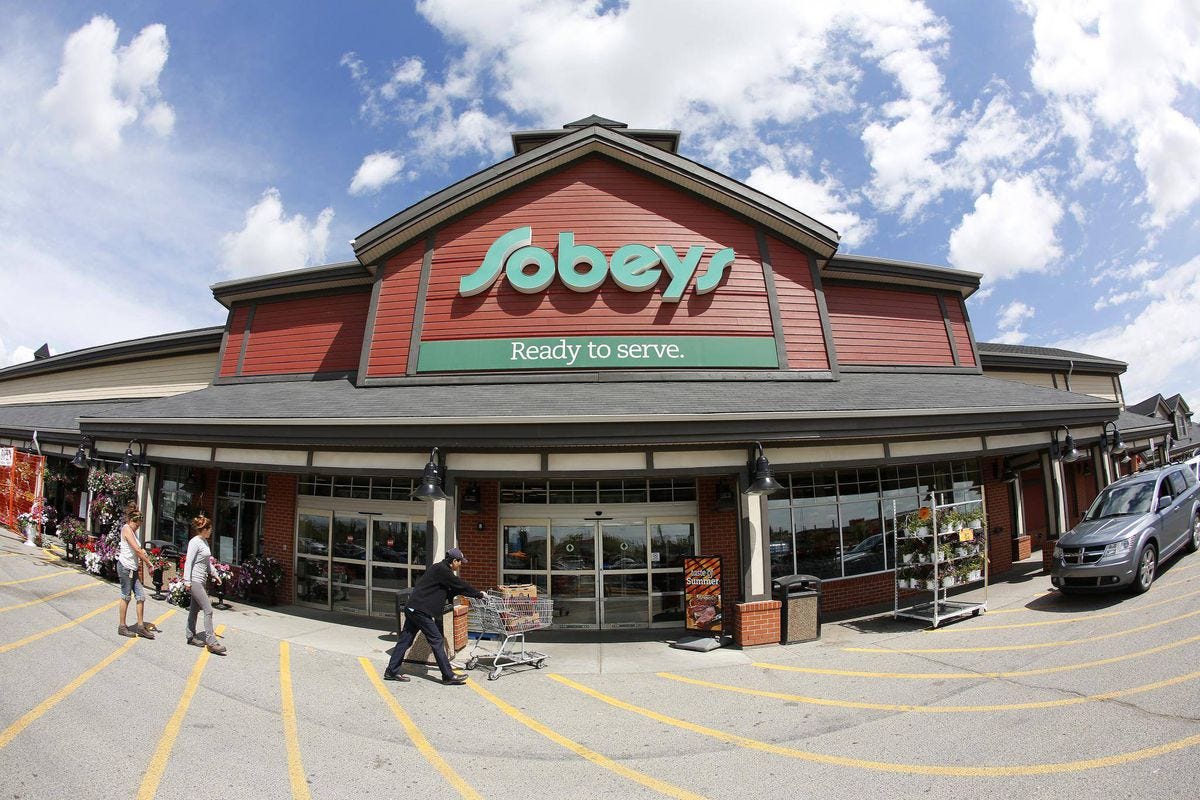Prime Minister Justin Trudeau’s directive to force grocery stores to reset prices with the aim of stabilizing inflation appears to address Canada’s escalating food prices. While it may temporarily alleviate concerns and garner initial support, it falls short of addressing the root causes of inflation and could ultimately do more harm than good.

Inflation became predictable when the federal government injected an enormous sum of money—over $600 billion—into the economy as a response to the economic impact of COVID-related shutdowns, measures it endorsed and supported. Trudeau has attempted to attribute Canada’s inflation to Putin’s war in Ukraine in the past, despite previous conflicts in Afghanistan, Syria, or Iraq not yielding such inflation.
Inflation can be described as a decline in the purchasing power of a currency, influenced by a range of factors, including shifts in production costs, fluctuations in currency exchange rates, and alterations in consumer purchasing behavior. In Canada, it primarily results from the influx of excessive money into the market—a situation fundamentally shaped by government actions. Blaming grocery store pricing policies alone for this intricate economic issue oversimplifies the matter.
Trudeau’s handling of fundamental economic matters, such as budgets, deficits, and debt, remains perplexing. During the 2021 election campaign, he admitted to not dedicating much time to monetary policy. However, avoiding problems does not lead to their resolution. In 2020, Canada’s food inflation rate stood at 1.7 percent. Today, it has surged to ten times that figure. StatsCan reports that food prices, on average, now exceed their levels from two years ago by 20 percent.
The Prime Minister appears to lack effective strategies to address the problems for which he has contributed. Even his own Finance Minister, Chrystia Freeland, has shown a lack of understanding—just a month ago, she was celebrating Canada’s success in taming inflation.
Trudeau’s tendency to evade responsibility and shift blame elsewhere remains consistent. After eight years in office, he continues to blame the previous government for issues like the housing shortage. Now, he has shifted the blame to the same targets as his government coalition ally, Jagmeet Singh: the country’s large grocers.
Eager to appear proactive, Trudeau insists that grocery chains like Loblaws and Sobey’s must play a role in mitigating inflation by implementing price controls, with the threat of facing additional federal taxes if they do not comply.
However, the unspoken implication is clear: the Prime Minister seeks to absolve himself and his government of fiscal decisions that have driven up the cost of not only food but all commodities, placing the blame squarely on grocers.
This maneuver appears well-calculated: it absolves Trudeau and his government of responsibility, places the burden of inflation control entirely on grocers, presents an image of proactive leadership, sidesteps addressing the root issues causing Canada’s inflation rate to soar, and conveniently provides a scapegoat if inflation persists.
This approach is problematic on several fronts. Firstly, it enables Trudeau to evade political responsibility for the problem. Secondly, it entails unwarranted government intervention in the market, encouraging businesses to collaborate in setting prices, which is detrimental to a free-market economy. Thirdly, a Prime Minister should not possess the authority to issue ultimatums or coerce businesses operating within the bounds of the law.
This forceful directive may provide short-term relief to those affected by inflation, but it is problematic as it scapegoats a business sector for a problem created by the government. No government should single out a business sector to pay for its own policy mistakes.
Today, it’s the grocery chains. Tomorrow, it could be food producers, farmers, ranchers, or news outlets. Considering Singh’s stance on bankers, banks should pay close attention. Allowing Ottawa to avoid responsibility and accountability for its actions by pointing fingers at someone or a group to “fix” something that is the government’s responsibility to fix raises undemocratic prospects and poses a threat to all. If this arbitrary diktat is allowed to stand, nobody is truly safe.
Furthermore, this approach will be futile because grocers are not the source of the inflationary trend; government spending compounded by more taxes are. Essentially, the move will only harm businesses, damage employment, disrupt supply chains, affect food choices, disrupt distribution, and ultimately lead to higher food prices. Federal government intervention has previously shown gross incompetence, exemplified by the takeover of the Trans-Mountain pipeline project leading to skyrocketing costs, significant delays, and likely unprofitability. There are more examples but we can’t go on about those all day.
Trudeau’s actions reveal a lack of a clear plan to address inflation. It serves to create the illusion of government action and competence, which is far from accurate. While this scapegoating tactic may appeal to some liberal supporters, it does not offer a viable solution.
Reducing inflation requires a combination of prudent fiscal policies, effective monetary management, and a commitment to structural reforms—priorities that appear to be absent from the Trudeau Liberals’ agenda. Ultimately, this approach will not effectively combat inflation and will significantly damage the grocery retail sector, risking vital jobs in Atlantic Canada, for example, and potentially leading to government bailouts down the road. It is a recipe for further weakening the economy, which will only hurt more people down the road.
To receive new posts as they are published and to support our work, consider becoming a free or paid subscriber to our Substack here


Share Your Thoughts